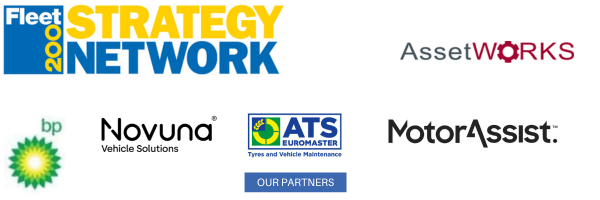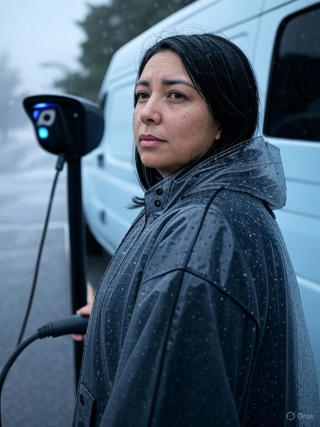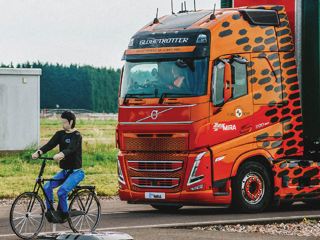Reassessment of the annual fuel rates, a national vehicle scrappage scheme and greater investment in ultra-fast chargers for electric HGVs are among a list of 10 demands made by fleet decision makers of the Government.
They were shared at the recent Fleet200 Strategy Network meeting in Barnsley.
Fleet manifesto: What is on your wishlist of priorities for the next government to focus on following the General Election?
Fleets would like the next Government to reassess its calculations for the AER because it is not sufficient to reimburse drivers doing business mileage in full electric cars, particularly if they need to recharge on the public network.
One said: “Yes, we can implement our own reimbursement to increase the payments, but why should we have to – the official rate should be sufficient.”
In response to the Government’s justification on the rate being that 80% of drivers charge at home, one fleet said: “The issue is they are asking the people who already have electric cars and home chargers – they aren’t asking the people who haven’t switched to find out whether they can change.”
Fleets would like the next Government to invest more heavily into a national network of ultra-fast chargers for HGVs and mandate that new sites must be able to accommodate vans and vehicles towing trailers/equipment. They would also like greater transparency over the charging price in advance.
Reassessment of the annual fuel rates, a national vehicle scrappage scheme and greater investment in ultra-fast chargers for electric HGVs are among a list of 10 demands made by fleet decision makers of the Government.
They were shared at the recent Fleet200 Strategy Network meeting in Barnsley.
Fleet manifesto: What is on your wishlist of priorities for the next government to focus on following the General Election?
1. AFR reimbursement rate
Fleets would like the next Government to reassess its calculations for the AER because it is not sufficient to reimburse drivers doing business mileage in full electric cars, particularly if they need to recharge on the public network.
One said: “Yes, we can implement our own reimbursement to increase the payments, but why should we have to – the official rate should be sufficient.”
In response to the Government’s justification on the rate being that 80% of drivers charge at home, one fleet said: “The issue is they are asking the people who already have electric cars and home chargers – they aren’t asking the people who haven’t switched to find out whether they can change.”
2. National HGV charging network
Fleets would like the next Government to invest more heavily into a national network of ultra-fast chargers for HGVs and mandate that new sites must be able to accommodate vans and vehicles towing trailers/equipment. They would also like greater transparency over the charging price in advance.
3. Destination charging
Fleets would like more focus put on destination charging, particularly at hotels. Many are taking out chargers because they cannot justify the cost but fleets believe the Government should mandate that hotels should install a certain number of chargers based on a set percentage of their rooms.
4. Plug-in van grant
Fleets would like to see the plug-in van grant increased as the price of electric vans is rising so the gap with the current PiVG is growing, especially for dropsides etc, which can be £80k+.
Companies are facing the issue of putting electric vans onto their fleets to meet tender agreements but the clients do not want to pay more for then.
4. National scrappage scheme
Fleets would like to see a national scrappage scheme to help switch people from old, high emission cars into clean electric and help support residual values, making the cost of leasing new cheaper.
They would also like the Government to consider funding a home charger if someone buys a used BEV, especially with the cost of chargers increasing (was £400-500, now £1k+).
“Our biggest challenge is the fact that BEVs are flooding the fleet market but there is no second-hand market,” said one fleet.
“It needs Government support to give confidence to fleets and consumers that there will be demand for used BEVs to support new car finance contracts.”
5. BEV incentives
The Government needs to reconsider incentives to boost uptake of new BEVs over an above the current preferential treatment of BIK.
Some companies are seeing employees switch out of a full electric into a PHEV because of the additional flexibility on range/refuelling while the higher BIK is offset by a lower P11D making the cost not much more expensive than a BEV.
6. Reconditioned batteries
Fleets would like to see insurance testing and approval standards for the use of reconditioned batteries recovered from vehicle write-offs, rather than the battery being condemned straight away.
7. Vulnerable road users
Fleets would like to see the Government do something to make vulnerable road users and pedestrians more aware of the environment around them.
All the responsibility sits with the driver.
They would also like the Government to legislate to mandate mobile phone blockers in the car so drivers cannot use phones, inc hands free.
8. Cut VAT in public chargers
Cut the VAT on public charging from 20% to 5% to put it in line with home charging and incentive EV take up by the public.
9. Pot holes
Damage caused by potholes - request the Government does more to repair and maintain the roads
10. Charge point transparency
It is great that the government are publishing stats around new ChargePoint’s being brought online however there needs to be more clarity around the geographical split/locations of these.
They should also be incentives or penalties for providers cherry picking urban areas.
Plus, what are current business challenges and considerations challenging fleet decision makers today:
Rising insurance costs
Insurance is a big issue with the high cost of repairing BEVs meaning many are written off too quickly.
Some insurers have changed the write off ‘repair to value’ threshold on BEVs to between 35% to 45% because of long lead times for repairs (typical ratios are 50-60% of the vehicle value).
There is still a lack of capacity for accident repair.
Fleets are also seeing a lot of faults with the latest technology that neither dealer nor manufacturer seem able to fix, resulting in more time off the road.
EV service regime clarity
Fleets would like to see greater clarity around service schedules for BEVs – there is a lack of guidance from OEMs.
It isn’t consistent like ICE of annual/every 12k miles. e.g. Tesla is every three years for brakes and aircon filter changes. With the rise in connected vehicles, fleets would like to see OEMs proactivity alerting them when fault lights (or a fault code) come on and book the car in for maintenance.
Hydrogen
The plan for alternative fuels – electric is getting better and will continue to do so but for trucks is this really the right choice?
If someone does launch a hydrogen vehicle what impact will that have on the EV Market and these that have invested heavily?
Login to continue reading.
This article is premium content. To view, please register for free or sign in to read it.

























Login to comment
Comments
No comments have been made yet.